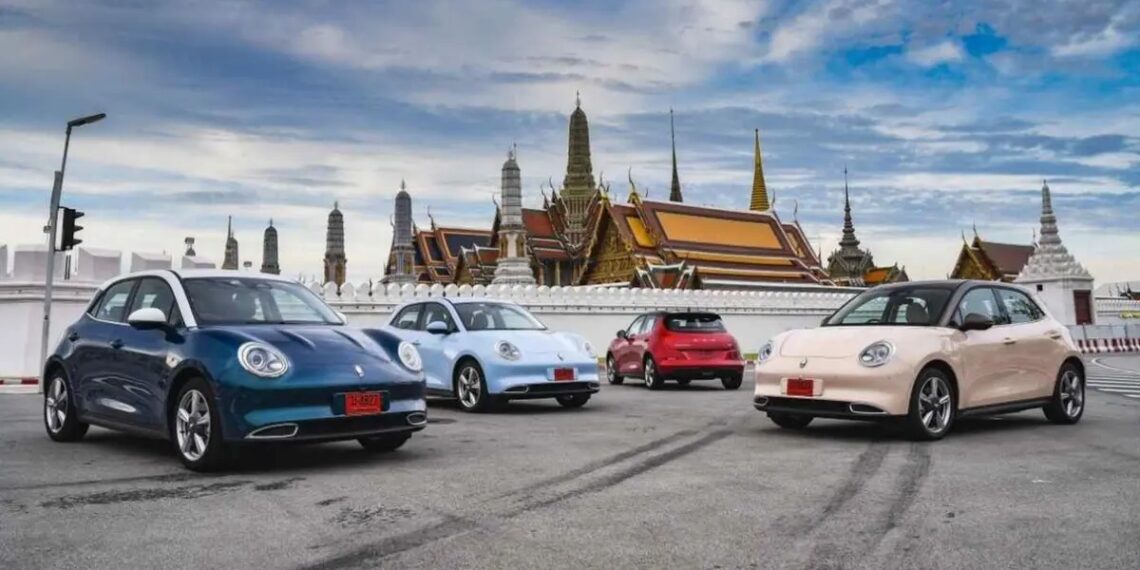No products in the basket.
PTT, Thailand’s state-run energy giant, is facing significant setbacks in its decarbonization efforts as its ambitious electric vehicle (EV) production plans are stalled.
Key takeaways
- PTT’s EV production plans in Thailand are stalled due to weak demand and reduced interest from Chinese automakers.
- The company is reconsidering its investment in the Horizon Plus joint venture and may withdraw capital.
- PTT aims to transition to a more sustainable business model with decarbonization initiatives, despite challenges in the EV sector.
Since 2022, PTT has been constructing an EV assembly plant in Chonburi province, located in eastern Thailand, through Horizon Plus, a joint venture with Foxconn.
With a total investment of approximately 37 billion baht ($1.1 billion), the plant was initially slated for completion in 2024, with an annual production capacity of 50,000 vehicles.
The factory was intended to manufacture electric vehicles under contract for Chinese automakers that do not have production facilities in Thailand.
However, in a recent announcement, PTT revealed it is reconsidering its involvement in the venture, indicating plans to reduce its stake in Horizon Plus.
Local media reports have also confirmed that factory construction has been suspended. While PTT has not disclosed full details, there is speculation that the company may even withdraw capital from the joint venture.
Over 90% of PTT’s revenues are derived from fossil fuels, with the remainder coming from mining and pharmaceuticals.
As environmental, social, and governance (ESG) factors grow increasingly important, PTT faces mounting pressure from investors concerned about its heavy reliance on fossil fuels.
In 2023, PTT announced plans to invest around 100 billion baht through 2027 to shift toward a more sustainable business model.
This includes launching a series of decarbonization initiatives such as Thailand’s first hydrogen fueling station and developing carbon capture and storage technology.
The company aims to cut greenhouse gas emissions by 15% from 2020 levels by 2030, with the ultimate goal of reaching net-zero emissions by 2050.
Electric vehicle production was seen as a key pillar of this green transformation. However, industry-wide EV sales in Thailand, which surged to 76,000 units in 2023, nearly eight times the previous year’s figure, have shown signs of slowing.
Growth in 2024 has been subdued, with tighter auto loan regulations dampening demand. In addition, many Chinese EV manufacturers, including BYD, have set up their production facilities in Thailand, reducing the need for outsourced manufacturing.
Horizon Plus had initially anticipated substantial demand from these companies, but few have committed to contracting production with the joint venture.
Despite stable earnings, PTT has begun restructuring its operations under the new leadership. The company has already decided to exit the fast food business and cease its plastics production.
The reevaluation of its EV production plans is part of this broader restructuring effort. The Thai government, which has committed to achieving carbon neutrality by 2050, has introduced a range of policies to encourage green industrial shifts, including subsidies and feed-in tariffs for solar energy production.
Discover more from Thailand Business News
Subscribe to get the latest posts sent to your email.













